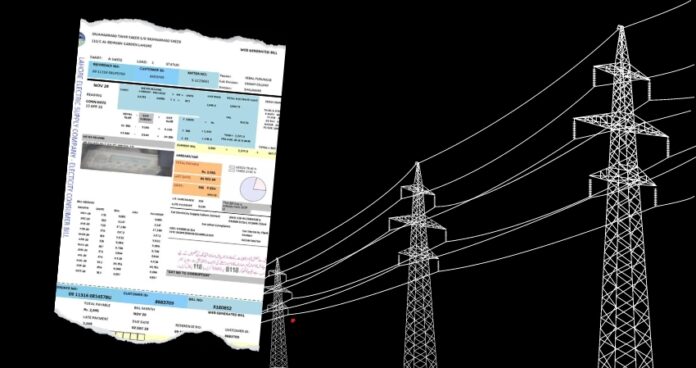The Ministry of Power expressed reservations regarding the precision of a recent report by the National Electric Power Regulatory Authority (NEPRA) on inflated electricity bills issued to consumers nationwide, stating that it contains exaggerated and false statistics.
On December 4, NEPRA released an inquiry report addressing concerns about excessive billing by power distribution companies (DISCOs). In response, the Ministry of Energy implemented a two-pronged strategy.
It directed DISCOs to assess and provide detailed analyses of the inquiry report’s assumptions, processes, and findings.
Additionally, an independent committee was formed to review the basis, assumptions, methodology, and findings of the NEPRA report.
After evaluating inputs from DISCOs and the committee, the Ministry of Power released a preliminary report on Tuesday, December 12.
According to the ministry’s findings, many data sets used by NEPRA’s professionals were inaccurate or invalid, leading to exaggerated and false statistics. The report points out issues of quality control, arithmetic errors, and data processing errors in NEPRA’s findings.
The ministry criticised NEPRA for utilising an unrepresentative and biased random sampling approach, contrary to established practices. It noted that the report did not consider ground realities and operational constraints of the distribution business, such as weekends, holidays, and feeder bifurcations.
The lack of robust exploratory data analysis and a cross-validation mechanism in the NEPRA report is highlighted as misleading and contributing to sensationalism.
NEPRA’s inquiry report initially highlighted consumer complaints about DISCOs charging excessive and incorrect bills during July and August 2023.
However, the Ministry of Power challenged NEPRA’s statistics, asserting that the actual figures differ significantly. The ministry argued that approximately 86% of consumers were billed within the due date for July, compared to NEPRA’s quoted 76%.
Furthermore, the ministry contested NEPRA’s claim that around 3.2 million consumers were affected in July, stating that the actual data indicates only about 0.8 million consumers were affected.
The ministry’s critique suggests a discrepancy between NEPRA’s findings and the actual billing statistics, emphasizing the need for accurate and transparent reporting in the evaluation of electricity billing practices.





This article contains some intriguing points. If I hadn’t came upon this, I would never have looked into any of this.